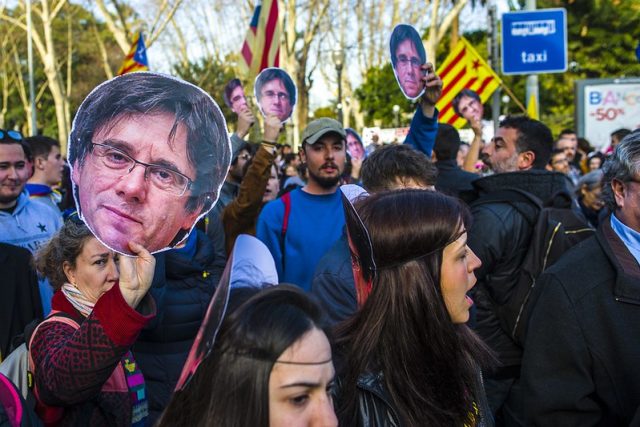
The recent congress in Calella, Catalonia, marked a significant moment in Catalan politics. Carles Puigdemont was re-elected as president of Junts, Catalonia’s pro-independence party, with over 90% of the vote, reflecting the party’s internal strength and unity. However, the solidarity within Junts is conditioned by its relationship with Spain’s central government under Pedro Sánchez, which now faces a complex web of political commitments.
Many of these commitments seem nearly impossible for the state to fully implement and equally challenging for Catalonia, an autonomous community, to accept without compromise.
In this tense political climate, Jordi Turull, the party’s secretary general, made clear that Junts’ support for the General State Budget depends on the government following through on agreements that, in his words, “have remained in limbo for too long.”
Turull outlined three key demands that the central government must address to gain Junts’ support.
First, the recognition of Catalan as an official language within the European Union.
The second demand centers on overdue investments in essential infrastructure and services in Catalonia. This issue has become increasingly significant for independence advocates, who expect a firm, tangible commitment from the central government to address these long-standing needs.
Third, Junts is pushing for the transfer of immigration control to Catalonia, especially given the growing importance of managing migration flows across Europe. Junts has become known for its critical stance on open-door immigration policies, reflecting broader European debates on migration.
In his speech, Turull expressed cautious optimism about the ongoing negotiations around immigration powers, noting that talks are “not off to a bad start.” However, he highlighted hesitations from certain ministries, particularly the Ministry of the Interior. This reluctance underscores the challenges in reaching agreements between Spain’s central government and its autonomous regions. The transfer of such powers is complex and brings to light a relationship that, though it seeks progress, still faces significant obstacles and lacks the cooperative spirit needed for true partnership. For many, the interaction between the central government and Catalonia remains largely transactional, motivated by political survival rather than mutual goals.
Antoni Castellà, the vice president of Junts, also called on the central government to make a “bold gesture” toward Catalonia. He suggested partially forgiving Catalonia’s debt from the Autonomous Liquidity Fund (FLA), an issue that resonates deeply in discussions about regional financing. However, this proposal faces pushback from other regional leaders, who argue that debt forgiveness would undermine the principle of equality mandated by Spain’s Constitution.
Castellà further argued that the distribution of the spending cap, which shapes Junts’ priorities, should be revised. Currently, spending limits are applied with a uniform approach across the state, autonomous communities, and municipalities. Catalonia, however, advocates for what it sees as fair access to resources, often positioning itself as a priority over other regions, a stance aligned with the core principles of Catalan independence ideology.
With these demands, Junts has positioned itself as a key player and a decisive force in Spanish politics. Its rhetoric and strategies have raised questions, as they challenge the principles of a consolidated democracy like Spain, where the interests of a few are affecting measures that impact the entire nation.
Junts is pressuring the government to uphold agreements that seem unrealistic for a central administration tasked with representing all Spaniards, which is obligated to act equitably. This pressure threatens the political stability Spain needs to navigate a complex post-pandemic recovery and internal divisions. With its voters closely watching and a history of tensions following the 2017 independence referendum, Junts appears ready to take bold steps, potentially impacting not only Catalonia’s political trajectory but also that of Spain as a whole.
The unfolding of this situation will be pivotal, shaping the future of relations between Catalonia and Spain’s central government and even influencing broader European politics. How both sides navigate these demands and expectations will define not only the stability of Spain’s internal politics but also the perception of regional autonomy movements across the EU.



 Subscribe
Subscribe